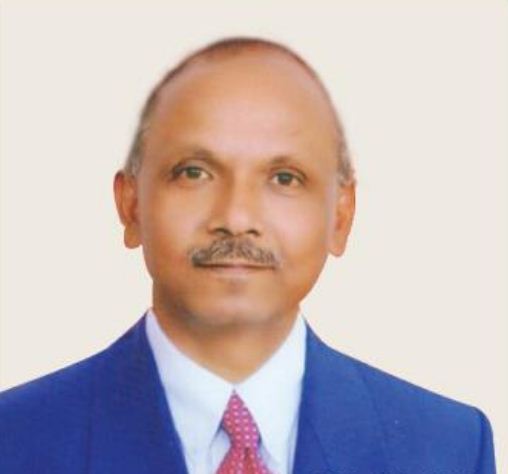Bheemanna Khandre Institute of Technology

Dr. Bipin Bihari Lal, Principal, Bheemanna Khandre Institute of Technology
The Exemplars of Quality Workforce:
The Indian technical education sector is concentrated predominantly in the urban areas that host more than 77 percent of the engineering colleges in the country, even though over 70 percent of the country\'s population resides in the rural areas. Bheemanna Khandre Institute of Technology, Bhalki is one among the few time-honored engineering colleges that caters to the needs of rural and urban population through a well-established campus away from big city location. Established in the year 1982 as a Rural Engineering College with 120 intake in three different disciplines, the institute changed its name to Bheemanna Khandre Institute of Technology (BKIT) after an inspiring journey of 30 years. We have strong presence in the northern parts of Karnataka and have many students hailing from all over India, especially from Hindibelt States. However, many students from outside Karnataka had a misconception about our engineering programs due to our name Rural Engineering College due to which we have changed ourselves as Bheemanna Khandre Institute of Technology, Bhalki, says Dr. Bipin Bihari Lal, Principal, BKIT.
Today with 5 UG, 5 PG and 3 PhD programs, BKIT surpassesthe prescribed infrastructural and miscellaneous facilities by AICTE such as 165 teaching staff, 190 non-teaching staff, 65000 books in the library with more than 1500 e-subscribed and print journals, three research centers, dedicated Training and Placement Cell and many more. Engineering education needs to be dynamic asthe changes in the technology are abrupt today. Hence, we have provided ample resources for our faculty members and students to upgrade their knowledge in whichever fashion they see fit, says Dr. Lal who has been associated with BKIT since 1988 and has donned several roles for the institute prior to becoming Principal.
While todays engineering education demands faculties to be equipped with latest knowledge, Dr. Lal claims, Finding skillful faculty members and retaining the current horde are increasingly difficult now. Through conducting minimum two or three seminars, workshops and faculty development programs inside the campus almost every month and sponsoring our staff to IITs NITs, we have ensured that our teachers enjoy their freedom and responsibilities with opportunities to master their craft.
With the help of highly experienced faculty members and very active Training & Placement Cell established in 1993, BKIT has produced more than 9,000 technically sound graduates who are well placed in Government, Private and Public sector organizations in India and abroad. The constant record of 90 percent placement for eligible candidates not only acknowledges BKITs excellence in creating quality workforce but also in having great potential of engineering institute from rural area in nation building process through high quality education, training and utmost care of students.
The Indian technical education sector is concentrated predominantly in the urban areas that host more than 77 percent of the engineering colleges in the country, even though over 70 percent of the country\'s population resides in the rural areas. Bheemanna Khandre Institute of Technology, Bhalki is one among the few time-honored engineering colleges that caters to the needs of rural and urban population through a well-established campus away from big city location. Established in the year 1982 as a Rural Engineering College with 120 intake in three different disciplines, the institute changed its name to Bheemanna Khandre Institute of Technology (BKIT) after an inspiring journey of 30 years. We have strong presence in the northern parts of Karnataka and have many students hailing from all over India, especially from Hindibelt States. However, many students from outside Karnataka had a misconception about our engineering programs due to our name Rural Engineering College due to which we have changed ourselves as Bheemanna Khandre Institute of Technology, Bhalki, says Dr. Bipin Bihari Lal, Principal, BKIT.
Today with 5 UG, 5 PG and 3 PhD programs, BKIT surpassesthe prescribed infrastructural and miscellaneous facilities by AICTE such as 165 teaching staff, 190 non-teaching staff, 65000 books in the library with more than 1500 e-subscribed and print journals, three research centers, dedicated Training and Placement Cell and many more. Engineering education needs to be dynamic asthe changes in the technology are abrupt today. Hence, we have provided ample resources for our faculty members and students to upgrade their knowledge in whichever fashion they see fit, says Dr. Lal who has been associated with BKIT since 1988 and has donned several roles for the institute prior to becoming Principal.
While todays engineering education demands faculties to be equipped with latest knowledge, Dr. Lal claims, Finding skillful faculty members and retaining the current horde are increasingly difficult now. Through conducting minimum two or three seminars, workshops and faculty development programs inside the campus almost every month and sponsoring our staff to IITs NITs, we have ensured that our teachers enjoy their freedom and responsibilities with opportunities to master their craft.
With the help of highly experienced faculty members and very active Training & Placement Cell established in 1993, BKIT has produced more than 9,000 technically sound graduates who are well placed in Government, Private and Public sector organizations in India and abroad. The constant record of 90 percent placement for eligible candidates not only acknowledges BKITs excellence in creating quality workforce but also in having great potential of engineering institute from rural area in nation building process through high quality education, training and utmost care of students.

.jpg)